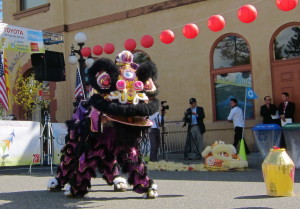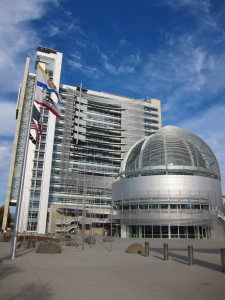Santa Clara County Superior Court Judge Vincent J. Chiarello says San Jose City has had consistent open-meeting act problems when council people issue joint memorandum in anticipation of a vote; some violations are inadvertent, but under the law, it doesn’t matter.
By Sharon Simonson

SAN JOSE—The Vietnamese American Community of Northern California has failed to persuade a state judge that former San Jose City Councilwoman Madison Nguyen and her council colleagues knowingly broke state open-meeting law in the days before a contentious 2007 vote to name a Vietnamese business district.
But she and five other council people did unintentionally breach the Brown Act, Superior Court Judge Vincent J. Chiarello concluded in a tentative ruling.
Moreover, while city attorneys argue there is no pattern of behavior or policy underlying the city’s six known violations of the law in the last 15 years, the facts “might suggest” otherwise, the judge wrote.
Three of the six violations occurred last year, Chiarello notes, and the problem is persistently linked to council members’ practice of issuing joint memoranda signed by five council people: a majority of the full council’s 11 members minus one. Council members who endorsed a political position by signing a memo then have broken the law by having subsequent conversation with council people who did not, the judge found.![]()
He would be willing to entertain issuing an injunction against the city requiring that when issuing a joint memo, “Councilmembers must ensure that they and their staffs have had and will have no relevant contacts whatsoever with other Councilmembers and their staffs,” the judge said.
The 97-page preliminary judgment denotes an inflection point in the eight-year dispute but is not decisive, said James McManis, an attorney for the plaintiff. “I was disappointed with the judge’s views on our case, but just like a good umpire, they miss calls, and he missed the call here,” he said. “This is a long way from final resolution.”
The parties have until the last days of July to respond to the judge’s tentative decision. A final judgment would follow, he said, but it is not clear how long that will take. The case was heard by the judge and did not include a jury.
The judge concluded that Madison Nguyen gave credible testimony at a trial earlier this year. He accepted her explanation for choosing to champion the name “Saigon Business District” as a defensible compromise even though city-staff research and public testimony to the council at an infamous November 2007 public hearing and meeting showed other names including “Little Saigon” were much more popular.
Council members Forrest Williams, Nora Campos, Nancy Pyle, Sam Liccardo, Dave Cortese, Judy Chirco and Mayor Chuck Reed voted to adopt the name “Saigon Business District” at Madison Nguyen’s urging. Council members Pete Constant, Kansen Chu and Pierluigi Oliverio opposed the measure, citing its divisiveness.
Several council members who supported Madison Nguyen, upon seeing the level of community discord related to her preferred name, backpedaled rapidly at the November 2007 meeting and public hearing; they suggested that the name meant nearly nothing beyond the city’s formal record keeping and that the community was free to adopt and use the name “Little Saigon” for branding or marketing purposes.
The judge said in his ruling that the plaintiff had “not proved any nefarious motive for Councilmember Nguyen’s selection of the name ‘Saigon Business District,’ and the Court certainly finds no improper motive.” However, the judge agreed that “a vocal majority” of the community had advocated for the name “Little Saigon.”
But McManis and Council member Tam Nguyen argued that Madison Nguyen’s and the council members’ votes to adopt the name “Saigon Business District” indicated impropriety on their face given the “vocal majority” support for the name “Little Saigon.”
“The judge has no clue,” Tam Nguyen said. “He’s watching the trees and losing sight of the forest.” Tam Nguyen succeeded Madison Nguyen in the District 7 seat. (The two are unrelated.)

“What needs to be examined is the way the council defers to the council member in whose district an issue arises,” McManis said. “Madison Nguyen for reasons that are not fully clear wanted a certain outcome, and the other council members went along with her.” The practice is tantamount to “government by one person,” and deprives the community of the wisdom of the full council, he said.
On March 4, 2008, the council agreed to rescind its November vote in favor of naming the area the Saigon Business District. Several years later, at Mayor Reed and Madison Nguyen’s urging, the city formally endorsed the name “Little Saigon” for the area, including freeway signs with that moniker, the judge said.![]()
The McManis Faulkner law firm and San Jose attorney Minh G. Steven Dovan are representing plaintiffs Vietnamese-American Community of Northern California pro bono, they said. The McManis law firm has fought San Jose City Hall in like actions through the years, often winning. The complaint defines the plaintiff as a “non-profit public benefit corporation” with headquarters in San Jose’s District 7. McManis described them as “public-spirited Vietnamese refugees and boat people who felt betrayed by Madison Nguyen.” The group appears to have no web site and could not be reached for comment.